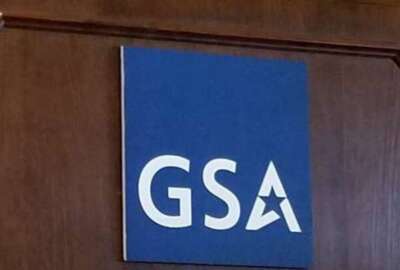Double-digit increase in reported sexual assaults at military academies
Reports of unwanted sexual contact increased sharply in the past academic year. The Pentagon believes the spike shows more reporting, not more crimes.
wfedstaff | April 17, 2015 4:30 pm
The Pentagon’s latest report on sexual assault at the three military academies finds sexual assault reports jumped by 23 percent over the past year. But DoD says combined with other findings in the annual study, the figure is not necessarily bad news.
The report to Congress lists 80 sexual assaults reported at the service academies in the 2011-2012 school year, compared with 65 the year before. Fifteen of the victims were at the Army’s West Point, 13 at the U.S. Naval Academy and 52 at the U.S. Air Force Academy. Thirteen of them happened before the victim entered military service.
Maj. Gen. Gary Patton, the director of DoD’s sexual assault prevention and response office, said each of those reports reflects the fact that someone was the victim of a heinous crime. But DoD sees the trend lines as positive in one respect.
“Because sexual assault is a grossly unreported crime, not only in the military but in society, we view an increase in reports as a positive trend that’s indicative of an increase in victim confidence,” he said. “We view any report being positive, because it means they’re receiving some sort of care.”
DoD believes the increased reports are not a reflection of increased sexual assaults. It bases that conclusion on a second part of its submission to Congress, which reflects the results of an anonymous survey of cadets and midshipmen: although the survey estimates 12.4 percent of women and 2 percent of men enrolled at the academies were the victims of some sort of unwanted sexual contact, those figures are statistically unchanged from the previous year.
Still, the figures are far too high, according to Defense Secretary Leon Panetta, who in a memo to the military academies last week, ordered a “strong and immediate response” to what he described as a “persistent problem.” All three academies will develop a comprehensive plan to change the climate at their schools by integrating prevention strategies into everything they do. Panetta ordered them to report back on their intentions by next March.
Patton said DoD already knows that a command climate makes a huge difference when it comes to both responding to and preventing sexual assault.
“The way the commander deals with the crime and addresses the victim at the point of the crime is really key to the climate of trust,” he said. “In that climate, the victim is taken care of immediately, is linked up with a sexual assault response coordinator, is provided immediate medical care and counseling, and the report is taken seriously by the command. We also know those steps have an effect on future offenders. A command where the victims will be taken care of and the report will be taken seriously is what we call a non-permissive climate. Offenders in that climate know things are going to be difficult. They’re going to be held accountable and punished.”
But with certain categories of reports, the offender actually can’t be held accountable.
In order to encourage more reporting of sexual assault, the military created two reporting categories. Restricted reports allow victims to report confidentially: they’re then given access to medical and psychological care, but the incident is kept secret from the victim’s chain of command and virtually everyone else. Unrestricted reports provide the details of the alleged crime to the victim’s commanding officer, who can then refer them to law enforcement. Because of that, DoD encourages unrestricted reports.
In the military at large, victims choose the unrestricted reporting mechanism by a ratio of about three-to-one. But in the service academies, it’s closer to 50-50. The reason for that discrepancy isn’t entirely clear, Patton said.
“One factor could be the living environment,” he said. “I was a cadet at West Point. You’re living with your brothers and sisters on the same floor in every aspect of life. Maybe that proximity is something that causes people to want to have that information more restricted. I think it needs further assessment, but it’s my best answer so far.”
A group that advocates for survivors of military sexual assault offered an alternative explanation.
“The high prevalence of sexual violence at the service academies correlates to the limited avenues for redress available to cadets and midshipmen who are victims of sexual harassment or assault,” said Anu Bhagwati, Executive Director of the Service Women’s Action Network and a former Marine Corps captain. “In a civilian college setting, victims of sexual violence are protected from discrimination by Title Nine. If civilian colleges fail to respond appropriately to student complaints, students can hold their universities liable. Not so for [military] students. There is no true deterrent to sexual violence at the academies.”
Patton acknowledged it’s clear that only a fraction of sexual assault victims currently make a report of any kind, and while the department doesn’t know why they choose restricted or unrestricted channels, it does have data on why a victim would choose not to make a report at all.
“This is a terrible crime, and fear, stigma and shame are really the best way to characterize why victims don’t report,” he said. “It’s something we have to constantly remain persistent on, because every victim that doesn’t make a report is a victim that isn’t afforded medical care or other support. This is really at the heart of the issue. The victim’s confidence is what will lead to greater care and lead to more accountability.”
While DoD maintains statistics on sexual assault cases reported at military academies each year, it’s more difficult to correlate those to courts martial and other accountability measures, since investigations and prosecutions tend to drag on beyond an academic year.
However, the Pentagon said the military services had both enough information and the jurisdiction to pursue investigations against 27 alleged perpetrators of assaults on cadets and midshipmen over the past year. Of those, commanders decided there was sufficient evidence to proceed against 14 of them. Eight were sent court martial, one received punishment directly from his command, and one was administratively discharged. Three more were punished for impeding the investigations into their alleged crimes.
Of the 13 cases that were reported but never prosecuted, four were because the victim declined to assist prosecutors, six were the result of insufficient evidence, and in three cases, the victim’s commander found the allegations to be unfounded, the Pentagon said.
RELATED STORIES:
Military sexual assault survivors storm Capitol Hill
Panetta orders action to curb sexual assaults
Air Force report falls short in fighting sexual assaults, victim advocate says
Copyright © 2025 Federal News Network. All rights reserved. This website is not intended for users located within the European Economic Area.
Jared Serbu is deputy editor of Federal News Network and reports on the Defense Department’s contracting, legislative, workforce and IT issues.
Follow @jserbuWFED






